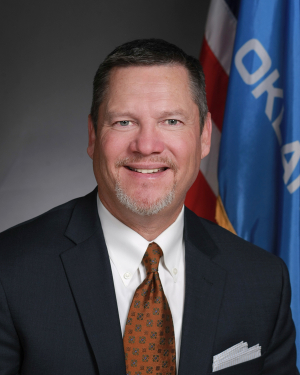The Senate cleared its second major deadline of this legislative session last week, and the chamber hit a pivotal point in the state budget process.
Before a March 14 deadline for bills to be heard in their chamber of origin, senators voted on dozens of bills in a marathon floor session that lasted for 13 hours. Bills that passed out of a Senate committee and passed off the floor now advance to the House. At the same time, House bills that have advanced through the Oklahoma Legislature’s lower chamber now come to the Senate. This process of legislation moving to the opposite chamber is often referred to as “crossover.” Bills must advance through both chambers before they can go to the governor’s desk.
As vice chairman of the Senate Appropriations Committee, much of my time during session is spent helping to write a state budget for the upcoming fiscal year. The Senate budget process has been dramatically different this year after Senate Pro Tem Greg Treat challenged myself and other appropriations leaders to make the process more transparent. As a result, the Senate has held 33 public meetings — more than ever before — to review state agency budget requests, approve spending recommendations and vet bills that would have a fiscal impact. Over the course of several weeks, the chairs of appropriations subcommittees appeared before the full Senate Appropriations Committee and made recommendations about how much money should be appropriated to each state agency.
Last week, my colleagues and I filed Senate Resolution 31 that spells out exactly what we think the state budget should look like for the fiscal year that begins July 1. The proposed spending plan that details more than $10 billion in appropriations is based on budget figures certified in February by the state Board of Equalization. It also takes into account the cost of the grocery tax cut that was recently signed into law. Appropriations for many state agencies remain flat, although the resolution includes funding for key priorities such as higher education workforce initiatives, state building maintenance and additional money for the State Department of Education to reimburse local school districts for lost property tax revenue. The resolution lays out a conservative spending plan that is subject to change as we begin our budget negotiations with representatives from the House and the governor’s office.
I passed several different measures off the Senate floor in recent weeks. Among those was a bill that will make it easier for people to get a driver’s license by expanding the number of locations that can administer written driving tests. Senate Bill 1766 will speed up the licensing process by allowing public schools, technology centers, higher education institutions and commercial driver training schools to serve as proctors for written tests. This bill also lowers the age for someone to enroll in a driver’s education course from 15 to 13 and a half. State law already allows minors as young as 14 to drive from a family farm to school, work or home. But current law only allows children age 15 or older to sign up for driver’s education courses. This bill would allow younger drivers to voluntarily undergo the training.
Senate Bill 1403, which would increase funding for county roads and highways by eliminating an existing cap on motor vehicle tax collections, also passed the full Senate. Counties are estimated to receive an additional $8.9 million in road and bridge funding next year alone should this measure become law.
As always, it’s an honor and a privilege to serve the people of Senate District 20.
The Oklahoma Legislature provides a livestream of legislative activity. Senate proceedings can be viewed online at oksenate.gov and House proceedings can be viewed at okhouse.gov.
Please feel free to contact my Capitol office with any questions or concerns you may have about legislation or other issues impacting our state at 405.521.5628 or at Chuck.Hall@oksenate.gov.





Be the first to comment on "Senator Hall: What we think the state budget should look like"